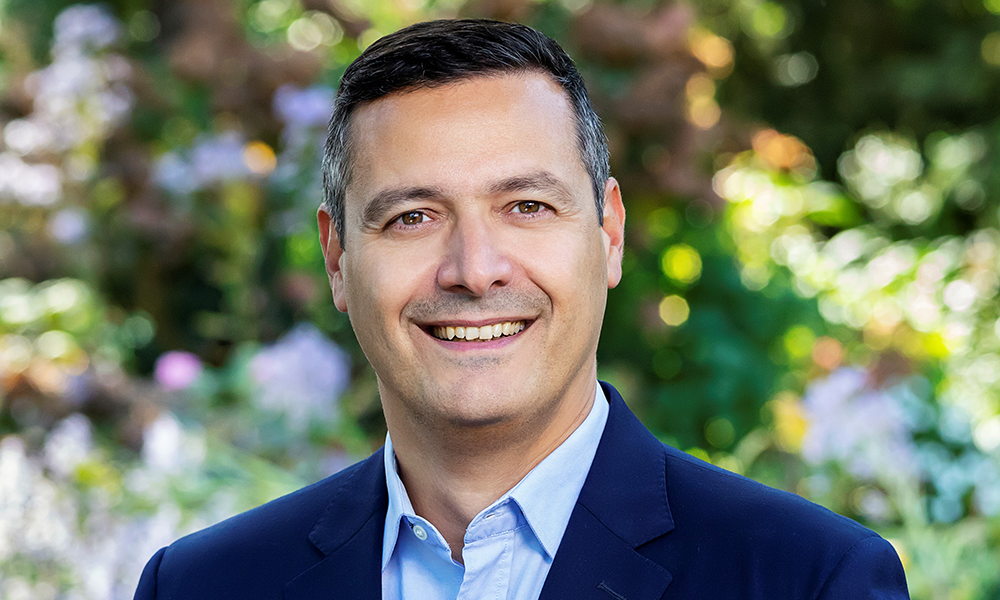Alum Christos Maravelias to give keynote address at ChEGSA Symposium
Emma Skidmore
Oct 6, 2023

Source: Christos Maravelias
Hailing from Greece, Christos Maravelias ('04) had never been to the United States before coming to Carnegie Mellon University.
Maravelias knew he wanted to be a chemical engineer since high school. After completing his undergraduate education at the National Technical University of Athens in Greece, he decided to pursue a master's degree in operations research at The London School of Economics and Political Science. It was there he discovered an interest in optimization and searched for a doctoral program that would combine chemical engineering and optimization.
"The program at CMU was known for that specialization," he explains.
Now, Maravelias continues to use the tools he learned during his studies, in addition to skills that have evolved throughout his career. After more than 15 years at the University of Wisconsin-Madison, Maravelias moved to Princeton University, where he recently became the chair of the Department of Chemical and Biological Engineering.
"There is a negative perception of the chemical industry these days, which is understandable. Most students almost automatically think that chemicals manufacturing has to be environmentally harmful," he says. "What is important to convey is that to maintain our current quality of life, we need the products the chemicals sector has been manufacturing, and making these products in a more efficient and sustainable way requires chemical engineering fundamentals."
To maintain our current quality of life, we need the products the chemicals sector has been manufacturing, and making these products in a more efficient and sustainable way requires chemical engineering fundamentals.
Christos Maravelias, Chair, Department of Chemical and Biological Engineering, Princeton University
Maravelias will be back on campus to give a keynote address at the 45th Annual ChEGSA Symposium on October 26. The research symposium started in 1979 with the goals of showcasing the work of ChemE graduate researchers, promoting intra-departmental research collaborations, and connecting students to industry.
In addition to receiving a number of awards over his career, including the National Science Foundation CAREER Award and the Production and Operations Management Society Applied Research Challenge Award, Maravelias is the author of the book, Chemical Production Scheduling: Mixed-Integer Programming Models and Methods.
Maravelias' research develops optimization theory, models, and solutions for problems in energy and process systems engineering, with emphasis on renewable energy technologies. He works on projects including chemical production scheduling, planning, and supply chain optimization, in addition to energy systems modeling.
"The design of systems that harness, mostly intermittent, renewable energy sources is one of the major open questions in chemical engineering," he says. "There are new energy systems that are not in place yet, and trying to understand if they make sense from an economic and environmental standpoint is of paramount importance."
Maravelias recalls benefiting from interactions he had with industrial partners as a student at CMU.
"I felt that the department had very nice industrial connections," he says. "I think regardless of whether someone goes to industry, academia, or government, having the ability to have these experiences is great. The ability to take many electives was also key for me. I took five electives which were outside the department, and for the type of research I do, that was great."
His experiences at CMU continue to stick with him long after he graduated. After becoming a professor at Wisconsin, Maravelias recalls the time a brick was left outside his office.
"I thought, 'Is this a message from some disgruntled student who didn't like how I taught the course?'" he says, laughing. "It was actually an undergraduate from Wisconsin who had gone to CMU for graduate school. The old lounge was torn down, and they found the brick that I had signed my name on when I was a student and brought it to Wisconsin."
